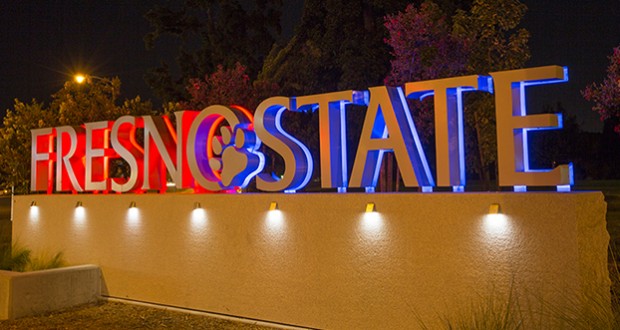A sea of pamphlets reading “Reclaim CSU” were held by students during an informational meeting on Feb. 1 to discuss lobbying on the possible tuition increase in the next academic year.
“Given that most CSU (California State University) students already have to work one or two jobs, any extra money is going to make it hard on students to come to school, especially if they’re at work all of the time,” said Sam Retton, a student at Fresno State and an intern with Students for Quality Education (SQE), who held the event.
The CSU board of trustees met on Jan. 31 and Feb. 1 to discuss a tuition increase for next year. In 2013, the CSU system placed a freeze on tuition increases for four years.
Retton stressed that the increase would have a great impact on students.
“I mean right now they’re only talking about $270 a year, but once they start going they usually don’t stop,” Retton said. “Even $270 a year is a textbook, for some people it’s close to their rent as well.”
SQE’s presentation acknowledged the decrease in state funding students in the CSU system. According to the California Faculty Association, the state of California spent 4.4 percent of the state budget on the CSU system in 1985. In 2015 only 2.4 percent of the budget went to the system.
The discussion also shed light on the number of hours that students must work in jobs to cover the cost of tuition.
In 1985, students would have to work 200 hours at a minimum wage job to cover tuition. In 2017, students must work close to 700 hours at minimum wage to cover tuition.
For members of SQE, every minute at the university is valuable. Time spent working multiple jobs impedes student education.
“I feel like people tend to listen to students,” said Cecilia Ruesta, SQE intern and Fresno State graduate student. “[College] is a place where you grow as a person, as an individual, mentally [and] physically. You create friendships here. You get educated. You mature here.”
The organization encourages students to become proactive in the use of their voices.
“It’s the perfect place where you build your individuality and your identity,” Ruesta said. “It’s becoming strengthened here in the CSU. That is why it’s important to raise your voice because this is the space that we have.”
For students like Jamie Garcia, a history major and member of Chicanx and Latin American Studies Student Association (CLASSA), tuition costs limit her educational ambitions.
“If tuition was free, I would probably pursue a higher degree than just a bachelor’s,” Garcia said. “[I] would probably get a master’s in either education or history or maybe both if it was free.”
Ruesta said Students for Quality Educations advocates for every student need and that it’s especially important in the current era of political uncertainty.
“Certain students are being discriminated, oppressed, being hated, and we want to give our space, our meeting times and our organizations to support those students,” Ruesta said.
Regardless of the issue, SQE members stressed their mission of helping students understand their impact on the future.
“We are the youth,” Ruesta said. “We are the future cops, the future counselors, the future poets or the future doctors. We are the future, so it’s important for us to speak now. To make sure that we understand that these issues are important to us, they are affecting us.”




